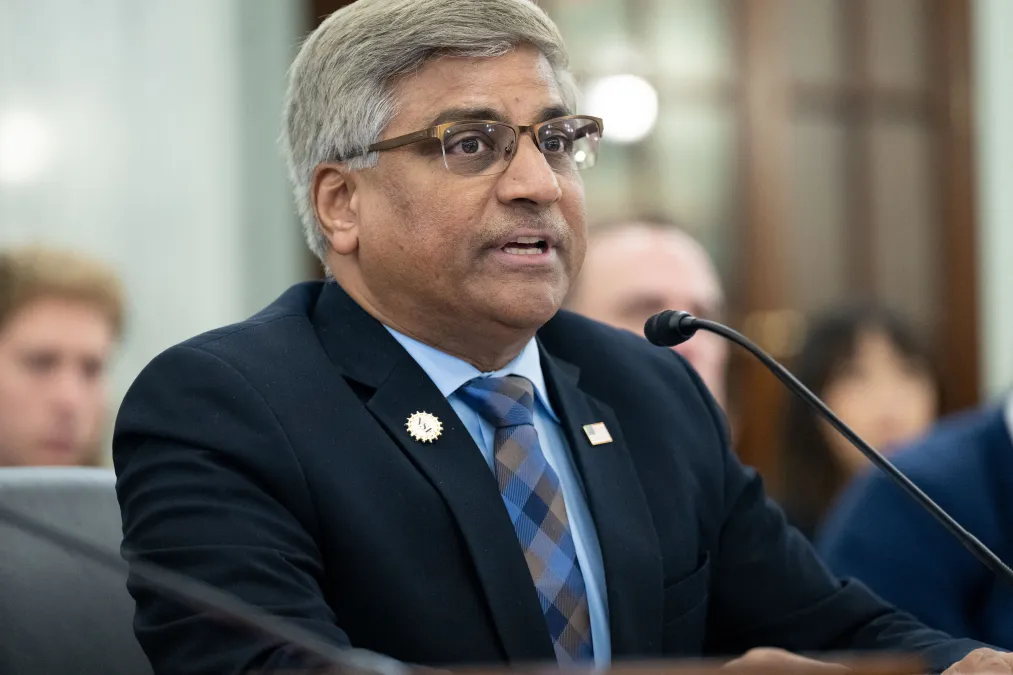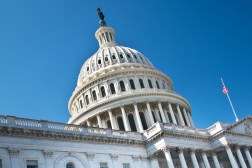‘Devastating’ NSF funding cuts present a ‘national security issue,’ officials tell House panel

Witnesses representing the National Science Foundation and its governing board at a Thursday House hearing underscored, in no uncertain terms, the negative impacts that decreased funding levels for science will have on the agency’s research priorities.
“The more we cut, the more the ideas that are being proposed to NSF in quantum, in AI will not be funded. And guess what; who’s funding them and the people? It is our competitor,” NSF Director Sethuraman Panchanathan said, in reference to global competitors.
“This is a national security issue,” he added, “and this is not something that we should take lightly at all. I’m extremely worried.”
Panchanathan’s comments came in response to a question from Rep. Zoe Lofgren, D-Calif, ranking member of the Committee on Science, Space and Technology, who asked about the impact that further cuts might have on research priorities on top of the roughly 8% cut the science agency already took in 2024 appropriations.
In response to that same question, Dan Reed, chair emeritus of the National Science Board, called the cuts “devastating.”
“We’re leaving the future on the table,” Reed said. “And I would add that those cuts potentially are convolved with inflation and so the real spending cuts are actually much larger.”
The hearing before the House Oversight Subcommittee on Research and Technology comes after NSF and other science agencies experienced cuts in the fiscal year 2024 appropriations passed by Congress.
Notably, those funding levels fell short of what lawmakers previously authorized to carry out the work of the CHIPS and Science Act, which was signed into law in 2022 to boost U.S. production of semiconductors and to support scientific research and development in emerging technology areas.
President Joe Biden’s proposed budget seeks an increase for NSF, bringing its funding from $9.06 billion in the fiscal year 2024 appropriations to $10.18 billion. But even that would still put NSF’s funding below CHIPS Act targets.
In response to a question from Rep. Scott Franklin, R-Fla., about the research NSF is able to fund, Panchanathan said the agency generally gets more than 40,000 proposals each year and is able to fund a quarter of those on average, but roughly 30-35% of proposals it receives have achieved NSF’s “gold standard” of merit review and could be funded.
Panchanathan said he’s worried about researchers being rejected for insufficient funds when their proposals were ranked high and not continuing to try. “The lost opportunity is not even part of this. If we factor that in, it’s even more than what we’re talking about,” he said.
Rep. Mike Collins, R-Ga., the chairman of the subcommittee, acknowledged the agency’s funding levels in opening remarks, noting that “the NSF’s budgetary constraints, coupled with evolving geopolitical dynamics and shifting research priorities, underscore the importance of our discussion today.”
Similarly, Rep. Haley Stevens, D-Mich., the subcommittee’s ranking member, pointed to the panel’s work on the science portion of the CHIPS and Science Act, which authorized the NSF’s Directorate for Technology, Innovation and Partnerships and called for a doubling of NSF’s budget by 2027.
“We can’t just say that we’re competing against China. We must put our money where our mouth is,” Stevens said.




